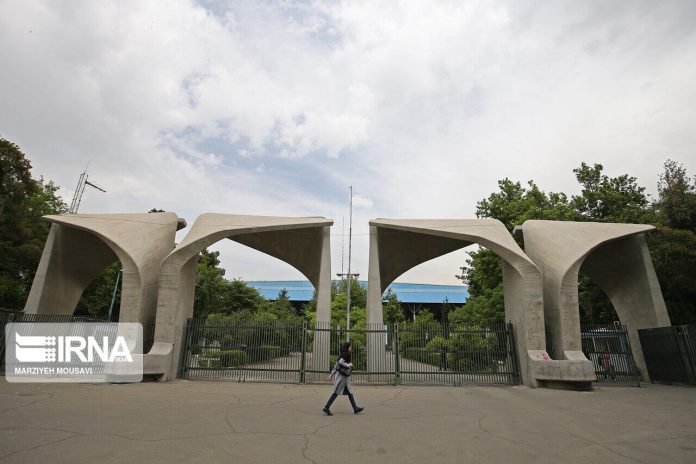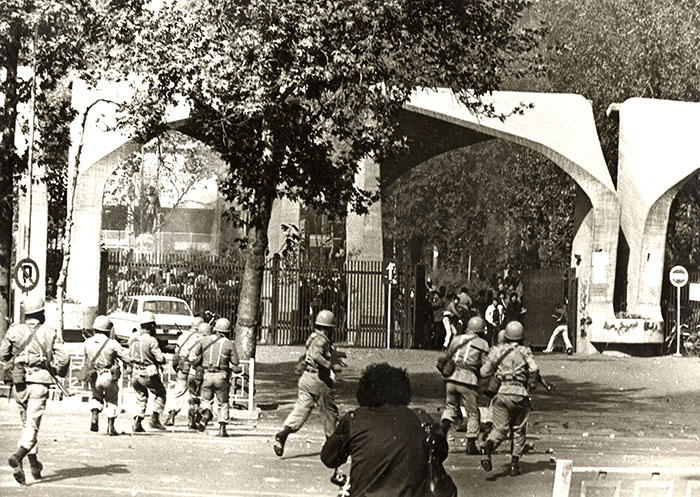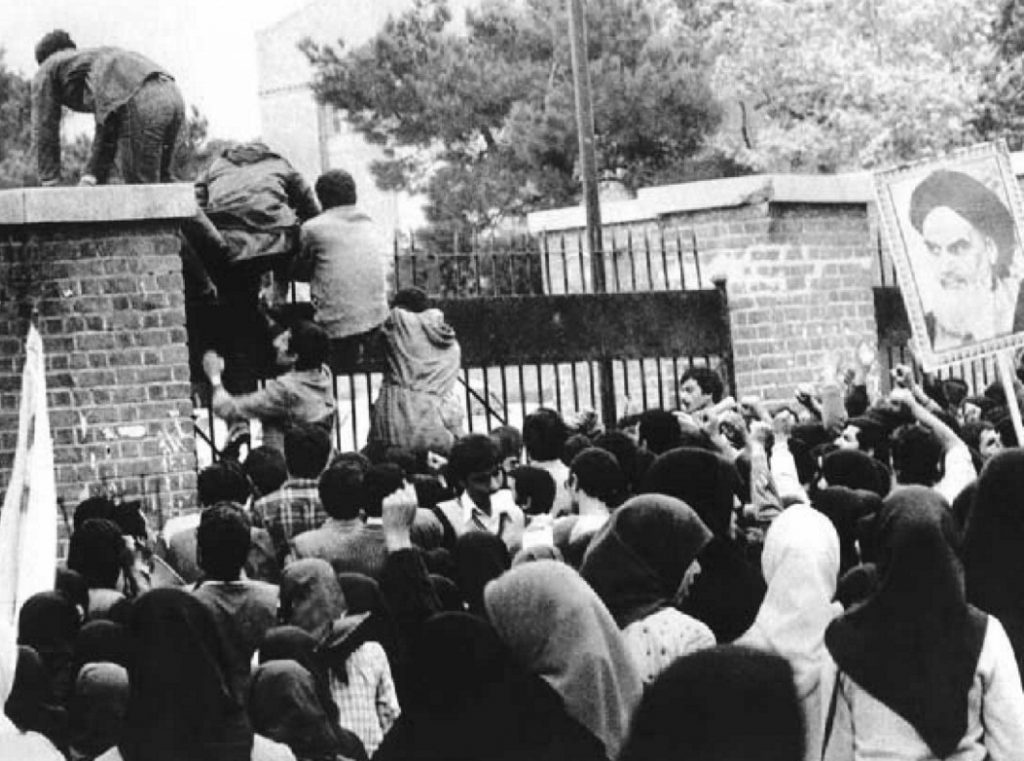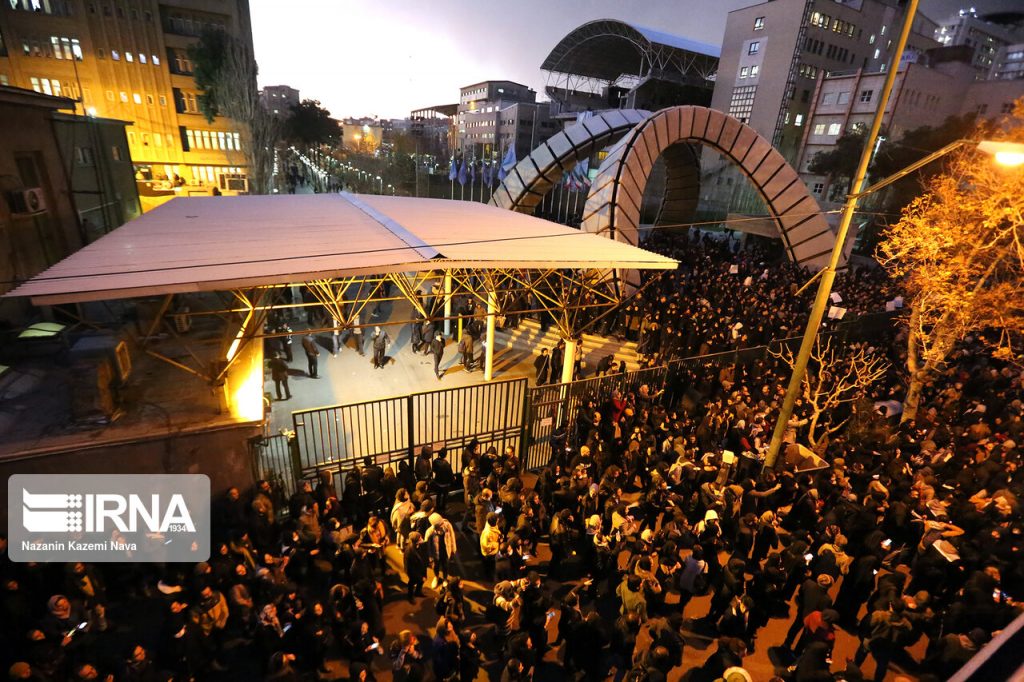Most people when traveling to a new country, are interested to know about tourist attractions (especially the historical buildings) and maybe some lifestyle such as the cuisines and language. But I think it is very minimum. When you enter a new country, be ready to see a new world. There are a lot of things to know and experience that are not gained unless you start continuous interactions and dialogue with the local people and discover more about their culture, history, institutions, and rationale. So, I’m not planning to write a lot of things about the “must-visits” in Iran, as you can find many things about it everywhere else through the Internet. Likewise, I don’t want to write a lot about what you can see normally in other places in the world.
The universities are one of the important institutions in society. Universities are not very old in Iran, imported and imitated mostly from the west. However, they have some special and unique functions in Iranian society.
The first day that I entered the university (Amirkabir University of Technology) for BSc, I had a totally different image from now. I thought it is just a turning point in my scientific life; I’m going to attend a lot of classes to learn a lot of things. But there was much more by other functions of the university than just education and research.
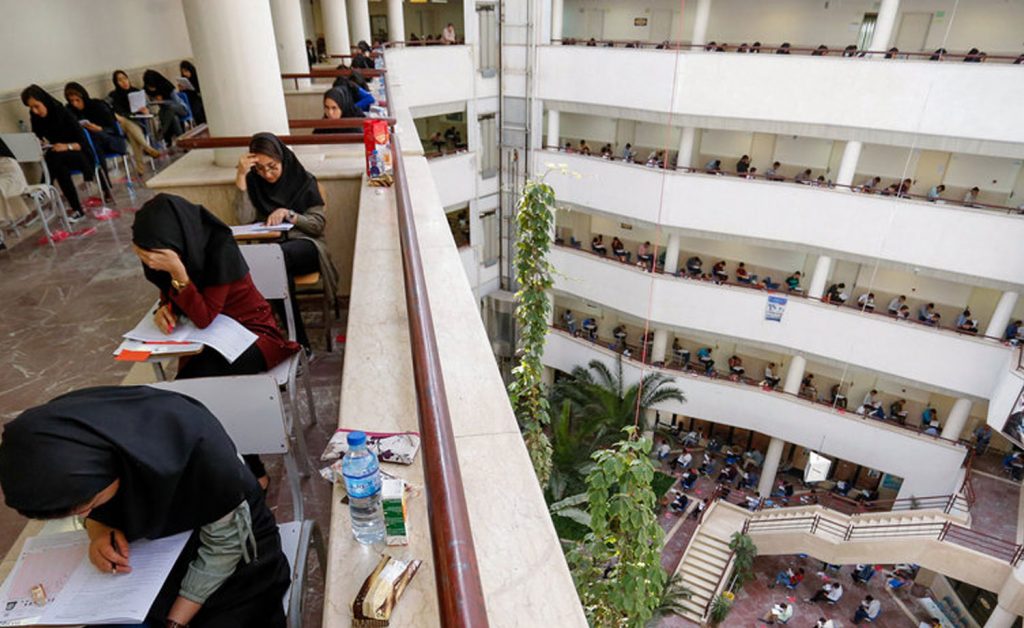
One of these functions in Iran is social mobilization. Students all over the country can attend the same national entrance exam -Konkoor (maybe rooted in the word Conquer!)- and compete for the good and free universities, mostly located in Tehran. The ones who are living in less-developed parts of the country even enjoy extra advantages given to them by the state to win in this competition. There are many institutions that are also supporting the students with high-quality books and free or cheap training in the last years of high school to succeed in Konkoor. Entering the university means achieving a lot more opportunities for employment in the future life, especially for good universities like all of the state universities in Tehran. It is not only because employers require at least some university degrees, but also because of joining personal networks which are so important in finding jobs in Iran (so, this networking is one of the main functions of the universities).
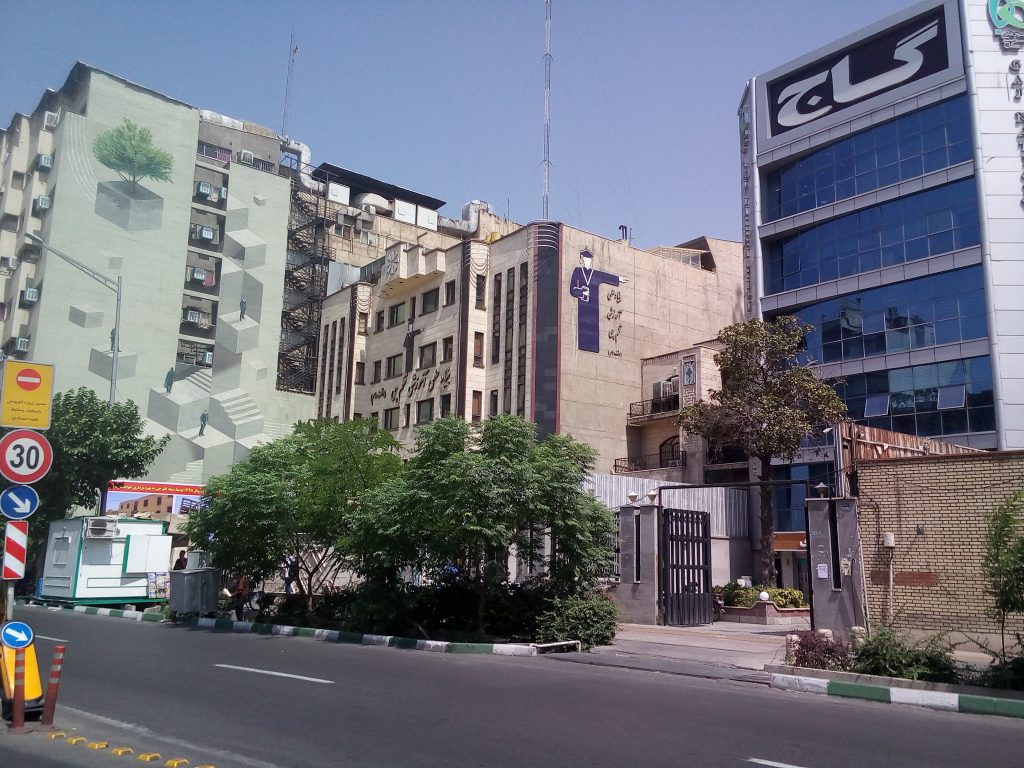
Another unique function of the universities in Iran is providing ground for social and political activism. University has always been offering a freer space than other parts of society. As a result, people inside and outside the university form diverse associations and groups. In all the important points of political history, the recent century in Iran, we can see the track and role of the universities. Moreover, there are many active groups in the universities in social volunteering, sports, arts, religion, entrepreneurship, etc. and joining these groups often determines the future personal careers and way of living. The teenagers find this opportunity to suddenly get out of the former social limitations and monitoring in schools and families. This is especially the case for those who travel to another city for higher education and live in the dorms with other people.
The university degree is not only crucial for employment and extra-curriculum activities but also brings a lot of social prestige benefitting many other different aspects of future life, even on future marriage opportunities! Thus, anyone in low levels of the society can determine and change their situation and future by a relatively high effort in order to achieve in Konkoor. As a result, the competition for entering university is very serious. The society and the families put high pressure on the teenagers to study hard for this exam and the plans for achievement in it are started so early, even from primary school! Some teachers complain that Konkoor has affected all the aspects of public education and is destroying fundamental capabilities such as creativity, soft skills, and responsible citizenship. Now, this is many years that different presidents and parliaments are trying to put an end to Konkoor, but they were unsuccessful because there’s no other way to decide who can be eligible to enter the high-ranked free-of-charge state universities.
This strong wave of interest in entering the universities has not only caused problems for the teenagers but also for the universities. A high percentage of the people who enter the universities and even continue to their masters and Ph.D. are not doing it because they are really interested in science and research. That’s mostly because of the other vital functions of the university for their life. Or maybe that’s a way to postpone becoming independent (because most of the young people don’t get married and find a job before they finish their university and finish the mandatory military service and without getting married and finding a job, they can stay with their parents even up until their thirties!) Anyway, you can see a lot of uninterested and unmotivated people in universities and as many of the PhDs seek their careers inside the universities, this trend is also leaked to the professors’ communities.
But let us back to the usual functions of the university: Training, research, and development. The quality is so different among the universities. But in general, the quality of training and education is much higher than the research. I have experienced classes in the best world universities, but I believe there’s the possibility to enjoy classes at a similar quality level e.g. in the Sharif University of Technology. This is especially true for technical majors such as mechanical engineering, electrical engineering, etc. and medical sciences. The country is investing particularly in nanotechnology, biotechnology, nuclear energy, and defense.
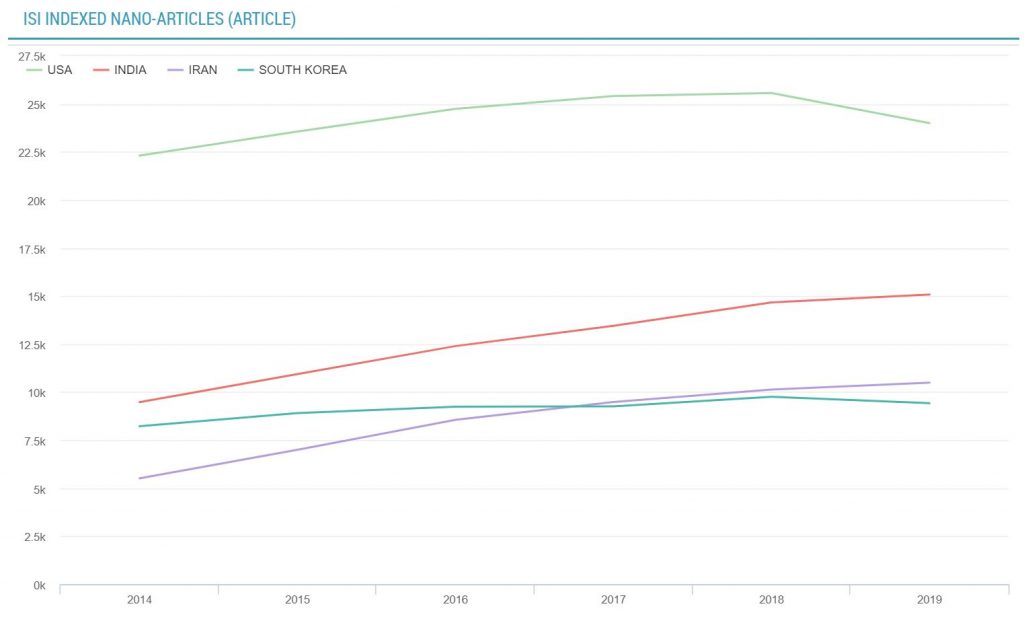
But the unintended effect of focusing on engineering and medicine is forgetting the social sciences and humanities! Most of the young elites who are talented children go straight to study those majors for higher education so that there’s an unspoken norm that anyone who goes to social sciences and humanities hadn’t been competent enough to study better majors. It has influenced the quality of these majors a lot that even some full professors don’t have even one article in the best international journals. However, this isolation in the global community is not limited to the publications. We have too few international universities, international conferences, and international research partnerships (regarding language spoken and published). There’s also a vast program on Islamization of humanities that hasn’t achieved so much.
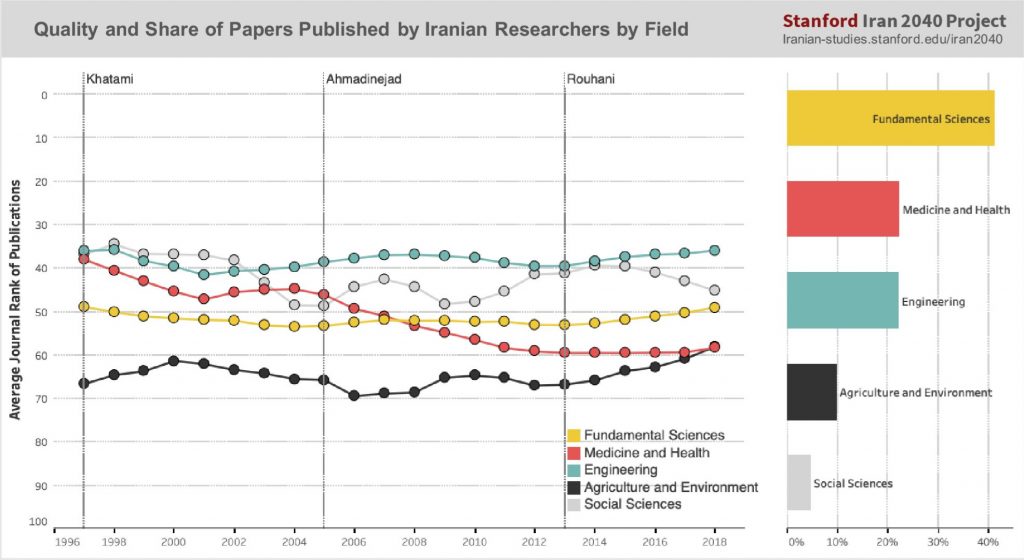
The government also supports the universities a lot as the most qualified are state universities -mainly funded from the public budget. The leader of the country (Ayatollah Khamenei) speaks frequently about the importance of science and encourages the youth for more academic achievements and see it as a Jihad (a holy sacrifice for the pleasure of the God). In recent decades, the number of Iranian publications has been increased prominently. This quick growth is mostly because of the ‘academic promotion’ rules; in simple words: the professors need more articles to be promoted. Even most of the master students in good universities have a couple of articles in their CVs. However, there are many critics about the low qualities of the publications. When you enter the Enqelab Sq. which is close to many universities in Tehran city center, you see many people who are advertising the sales of articles and dissertations. It is possible to defend your master’s thesis in a moderate academic institution with one or two extracted articles, without knowing anything about doing research at all!
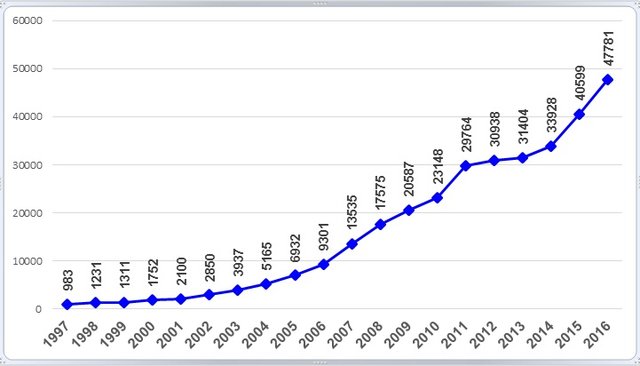
The number of scientific publications in Web of Science (Source: isna.ir) 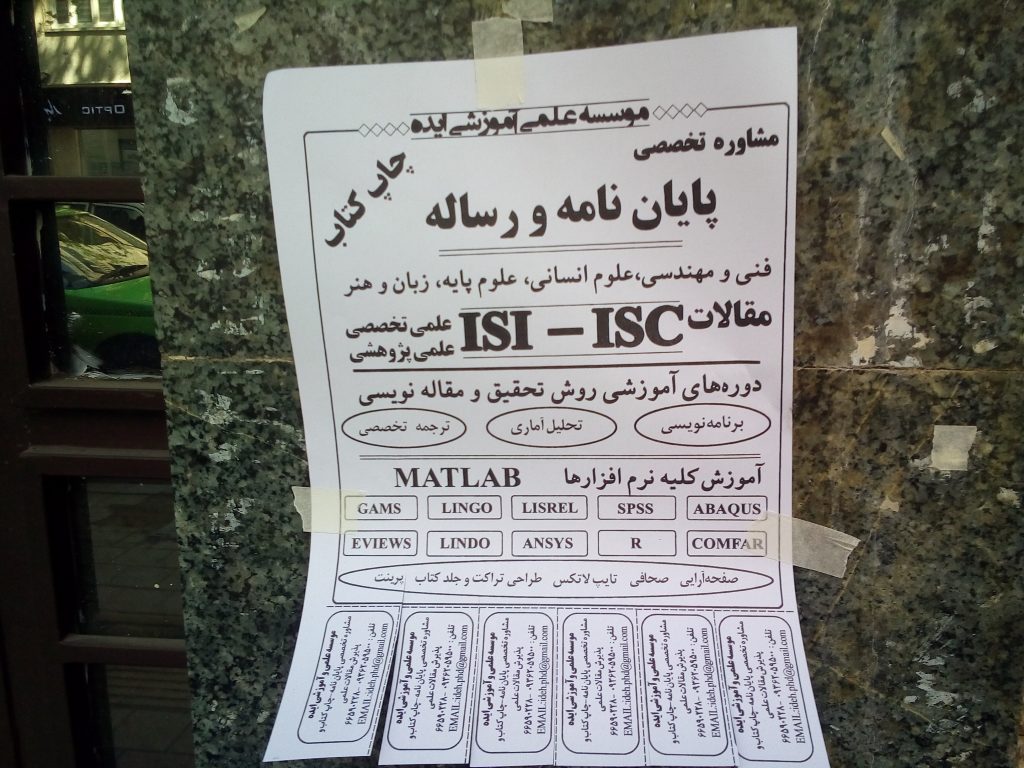
The advertising posters on the walls in Enqelab street in Tehran to get orders for doing dissertations and writing articles!
This notion of science in the country in some ways leaks to the economy and innovation policy. The government following the emphasis of the leader, has started supporting policies for what they call knowledge-based companies. Related post here. One of the deputies of the president called deputy of science and technology is responsible to support this policy.ِ
Further reading:
UNESCO science report 2015 for Iran
The National Comprehensive Science Roadmap (Persian version)
See the frequency of using the word “science” in the speeches of the leader here in Khamenei.ir



